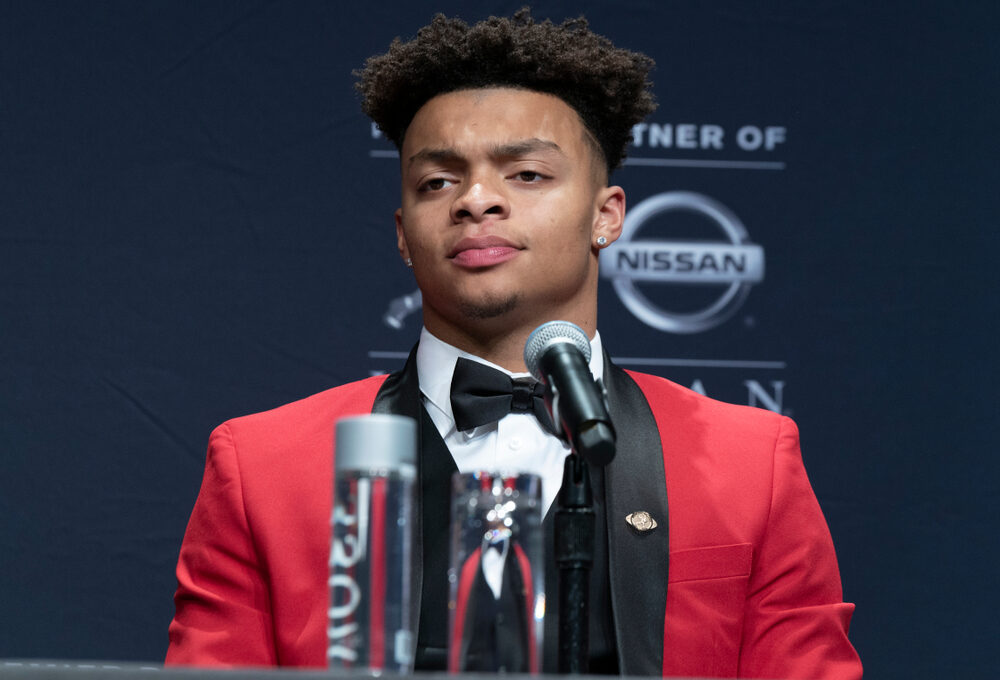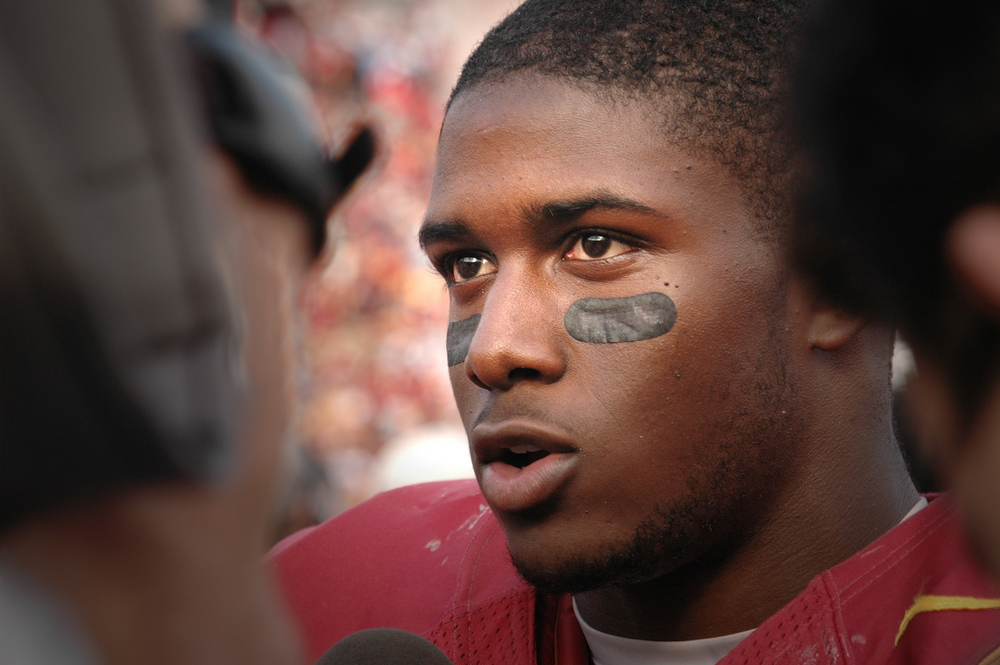Today, at nearly every turn, a bonanza of hoops experts exists. Some opine based on inference and ardency alone, and others on facts. However, in the latter group, individuals often speak solely about the eras with which they are familiar.
When canvassing the game’s greatest guards, no matter the interval, Oscar “The Big O” Robertson should not be overlooked. Moreover, his place as an activist cannot be obscured.
TRIPLE-DOUBLE
Back when Oscar was playing in the 60s and 70s, the expression did not exist. A triple-double occurs when a player reaches double figures in a single game in points, rebounds, and assists (it can occur with other categories). Of late, the Los Angeles Lakers Russell Westbrook (2017) and Magic Johnson (1980s), among others, were linked to the term. Oscar Robertson, in hindsight, made it cliché. While he has been lauded for averaging a triple-double for the entire 1961-62 season with the Cincinnati Royals, there’s more to the story. If one enumerates the totals of his first five NBA seasons (451 games), he again attains that status in each category (30.3 points, 10.4 rebounds, 10 assists).
INDUSTRY-STANDARD
His stats were remarkable, and his leadership skills were incredible. Although considered a point guard, he just thought of himself as “a guard [period],” after also playing forward in college. On the court, Oscar was described as a true “Floor General.” He performed with an almost perpetual scowl, barking out orders and assignments. As such, he was demanding and hard on his teammates.
During any contest, Robertson was known to provide “a game-long monologue of profanity” directed at his teammates (for errors or instructions) or referees (for bad calls). A rookie first-round pick named George Wilson, fresh off of Olympic gold and two NCAA titles, arrived in Royals training camp as a hyped-up power forward in 1964. Robertson was initially ecstatic. Later, during an intrasquad scrimmage, however, Oscar was unimpressed and stopped the action, screaming at the newcomer.
“S**T!!! Get outta’ here!!! You can’t get no [rebounds]!” [1]
The novice was stunned, but his veteran teammates were cracking up! It was by no means personal. When the ball was in play, he yelled at everyone. It was shrugged off as Oscar being Oscar: a perfectionist.
According to Cincinnati Royals teammate Wayne Embry, “some guys were afraid to play with Oscar. He had such quick reactions. You could get open and ZIP, the ball came at you. You’d never figure how he [could thread passes in traffic]. If you missed, he let you know.” [1]
During a Cleveland Cavaliers function for the jersey retirement of Zydrunas Ilgauskas, I met Mr. Embry, the first African-American General Manager in NBA history (with the Milwaukee Bucks), and chatted with him twice. There were a few legends and then-active players present. Talking with him is tantamount to conversing with an elderly, polished ambassador or head of state.
Knowing the answer, I still half-jokingly conducted an inquisition, elbowing a former team trainer who was standing nearby. “Watch this,” I whispered.
“Mr. Embry, who’s the greatest hooper of all time?” I asked.
His eyes narrowed as he aberrantly stuttered, “SH-SHOOT…these [dudes] can’t play. Oscar was it!”
All three of us were laughing at that point.
QUEEN CITY TO BREW CITY
The “Big O” lived up to the hype at every stop. After a stellar college career at the University of Cincinnati (business degree in hand), and an Olympic gold medal in Rome, he was the 1960 territorial draft pick of the Cincinnati Royals. In addition to Rookie of the Year honors while in Cincy, Oscar was not only a perennial All-Star but also All-NBA each season for the Royals. He was the All-Star Game MVP (3x), as well as the regular-season MVP in 1964. Unfortunately, the Royals, often also-rans, were mired in a division with the perennial champion Boston Celtics. Even though Oscar was sensational, local sportswriters, critics, and many fans eventually blamed him for their shortcomings. By 1970, Cincinnati management, never considered as Phi Beta Kappa when it came to constructing rosters, openly looked to trade Robertson.
According to a Sports Illustrated article, “Robertson…dealt with inept ownership in conservative Cincinnati, where the franchise consistently struggled at the gate and on the court. He fought contract battles and held out a few times, his only weapon before free agency, and in the process alienated fans. General manager Pepper Wilson once called him greedy, and Robertson answered: ‘If I’m greedy, I learned it from you.'” [2]
After exercising a veto clause in his contract, thwarting a potential deal with Baltimore, Oscar agreed to go to Milwaukee.
OSCAR THE GROUCH
When he arrived in Milwaukee, he was paired with a budding superstar named Lew Alcindor (Kareem Abdul-Jabbar). The roster had a nice mix of veterans ([former Royals] John McGlocklin, Bob Boozer) and youth (Lucius Allen, Greg Smith, Bobby Dandridge). The offense was constructed primarily for Kareem, but Oscar, scaling down his scoring, was the no-nonsense orchestrator and facilitator. When he spoke, everyone listened. The Milwaukee Bucks, with Robertson running the show, went 10–0 in the exhibition season, 66–16 in the regular season (including a twenty-game winning streak), and won the 1971 NBA Championship in a four-game sweep over the Baltimore Bullets. In the series clincher, Robertson scored 30 points and dished nine assists in only 38 minutes (while shooting 73% from the field). En route to the title, Oscar–a well-seasoned veteran and still an all-star–encountered an overzealous second-year opponent named Fred “Mad Dog” Carter in game four. Carter was in the spotlight due to the sore knees and feet of Bullets all-star starter Earl “The Pearl” Monroe. In the final game, playing major minutes, Carter (on a hot shooting streak) made the colossal error of trash-talking Robertson. He boisterously demanded the ball because he considered Oscar to be a senescent, defensive liability, claiming that since “O” was guarding him, it would be a cakewalk (“I’ve got Oscar [checking me] I’ll score easy!”). The ultra-competitive Robertson went berserk and torched the relative youngster at every opportunity within the flow of the game. His shelf-life was far from expired.
According to teammate Kareem Abdul-Jabbar (as written in Giant Steps), by the latter portion of the game, he had Carter “talking to himself.”
In the afterglow, “O” celebrated with his teammates–spewing and popping champagne in the locker room–and then headed back to the team hotel. Later that evening, second-year teammate Greg Smith found the normally stoic Oscar alone on an elevator, overcome with emotion, with tears of joy cascading down his face, “After all my life Greg… I’ve finally won the NBA title.”
His teammates had provided the taskmaster justification, at least for a nanosecond, to embrace bliss.
ROBERTSON v. NATIONAL BASKETBALL ASSOCIATION
So what exactly did he do? In the tumultuous 60s, many were reluctant to speak out, particularly African-American ballplayers in a league laden with racial quotas (sans the Boston Celtics and the now-defunct Chicago Packers). Oscar, an authenticated star from the onset, utilized his platform to counter several issues involving racism in the city of Cincinnati, as he had done there while a student-athlete.
Before deliberation, when an NBA player signed a contract, he was bound for “life at the team’s option.” The lawsuit (victory) eventually led to unrestricted free agency in the league as it is known today. At the time, Robertson was president of the NBA Players Union. Oscar would never wear a black beret or raise his fist on a podium. Yet, he was as socially conscious and courageous as any activist on the planet. Relatively speaking, he walked softly but brandished–and was willing to wield–a big stick. When he stepped in front of a Senate hearing room in 1971, as the lead plaintiff in the case, he had encroached into the inhospitable territory. The “Big O” did not flinch.
“Mr. Chairman, my name is Oscar Robertson,” he began. “This will be my 12th year in professional basketball, and I’ve seen some of the ills that were brought on the ballplayers when I first started playing basketball, and I think it’s terribly wrong for anyone to limit anyone’s ability to earn more money.” [2]
Some of the senators, no doubt avowed capitalists, found this idea jaw-dropping.
“You seem to have done pretty well,” said Senator Roman Hruska, a conservative Republican from Nebraska who, throughout the hearings, seemed to be one step away from calling Robertson “uppity.” “Do you think you are worth more than the one hundred thousand dollars you are getting?” [2]
In a whisper, counsel Larry Fleisher suggested that Robertson answer: “There may be those who wonder if you are worth the money you are getting from taxpayers.” [2]
The Big O smiled but came up with his response.
“To be honest and frank,” he said to Hruska, “I think so.” [2]
In the end, Oscar and the players emerged victorious, resulting in the delay of an NBA-ABA merger, preventing a monopoly by the owners, eliminating the “reserve clause,” increasing the number of free agents and ultimately elevating the salaries of the ballplayers.
The fact that, arguably, one of the greatest basketball minds in the history of the sport has never been offered an NBA head coach or general manager position is perplexing, if not inexplicable. In several instances, Robertson was “forgotten.” Was this reprisal for leading the lawsuit?
“[Commissioner] David Stern brought several NBA legends back into the fold [over the years], particularly [Bill] Russell, but Stern and Robertson were not simpatico, and it’s impossible not to take note that the late commissioner was the NBA’s attorney in Robertson’s suit against the league back in the 1970s.” [2]
SYNOPSIS
Despite his trials, his tests have become testimonies. Oscar Robertson will be the first to tell you that–contrary to popular belief–he is not bitter. From witnessing and enduring segregation growing up in Indianapolis, Indiana (where he led Crispus Attucks High to consecutive state titles), he has persevered. After arriving at the University of Cincinnati, he simply lorded over NCAA basketball and was recognized as the College Player of the Year three times (by both the UPI and The Sporting News) from 1958 through 1960.
Ron Grinker, a sports attorney and Cincinnati Bearcats mascot during Robertson’s playing days, stated, “People saw him as moody and difficult, he could be that way. One day he would act like your best friend, the next he may walk past you like he didn’t know you. I think some of it was a defense mechanism. He was the first Black ball player at the University of Cincinnati. On the court, everyone cheered for him. But there was a movie theater about a half block from the campus that would not sell a ticket to a Black person, even the great Oscar Robertson. That embittered him.” [1]
There was also an incident in the deep south when Oscar played for the Bearcats as a sophomore. The opposing fans threw some black cats on the floor when Oscar came out of the dressing room.
On another occasion, Oscar checked into his Houston hotel the night before the game, and he found a sign on the door that read, “No N*****s allowed.” Before a trip to participate in the “Dixie Classic” in North Carolina, Oscar received a letter from the Ku Klux Klan. “They said if I came down to Raleigh [NC], they were gonna shoot me.” [1] The “Big O” spoke up and as an aftereffect, was unfairly labeled as ungrateful or surly by many in the media.
In an interview on ESPN’s Sportscentury, Embry stated it best. “There were scars [on Oscar]…because there were wounds.”
Nevertheless, a nine-foot statue of the “Big O” stands outside of the arena where the University of Cincinnati Bearcats play today. The elite NBA guards can frequently see around corners, often anticipating how a play will ultimately develop. A benchmark of those within the pantheon of playmakers is whether or not one made his teammates better. Oscar did that at every stop. Preceding the 1966 All-Star Game, held at Cincinnati Gardens, Robertson set out to make his teammate, Royals guard Adrian “Odie” Smith, the standout participant in the contest. The entire night, “O” set Smith up, getting him the ball where he shot best. The result: Smith walked away as the game MVP with 24 points in 26 minutes, in his only NBA All-Star appearance. If one were to peek into Adrian’s garage today, a 1966 Ford Galaxie automobile, his award for that performance, is parked there in pristine condition.
Choleric persona notwithstanding, in culmination, Oscar was always unselfish, ready to assist, and began with the end–the long game–already in mind.
In The Players Tribune, Robertson wrote, “If the ‘Oscar Robertson Rule’ has had anything to do with these players getting what they deserve, I’m happy for it.” He continued. “What I’m getting at, is the players are becoming more on par with the owners as business people — and that’s moving the game forward. It’s helping to make this game what it is today. And I’m so proud of that. Years ago, the owners had all the power. Only owners could initiate trades. Sometimes the player didn’t
want to go to certain cities or teams, and they shouldn’t if they don’t wanna go there…We wanted a better LIFE for basketball players than what we had.” [3]
Pundits will forever brood over the greatest players of all time. The “Big O” played for fourteen professional seasons and averaged 25.7 points, 9.5 assists, and 7.5 rebounds in his career. Invariably his name appears when the topic is raised. That is subjective. Conversely, it is an absolute fact that Oscar’s off-hardwood exploits advanced the game and protected players. His legacy is about more than a triple-double. In totality, he utilized his platform, despite the threat of reprisal. Without fear, he ultimately set up those in his former profession with generational wealth. NBA Free Agency commenced over a week ago. The salaries are astronomical. Current employees have Oscar to thank for this.
On and off the hardwood, Mr. Oscar Robertson has been significant. Putting his business degree to good use, he founded the Orchem Corporation. The Cincinnati-based company is 100% owned by this Hall of Fame basketball legend, and is the leading minority-owned specialty chemical manufacturer in the United States.
He is no curmudgeon; furthermore, he possesses the gravitas of a leader. The “Big O” has perpetually been facilitating for others while consummating his calling. That’s the embodiment of a playmaker.
Mission accomplished!
By Dr. Eric Hawkins (“Dr. Hawk”)
The Hub.News/Knubia Sports
BIBLIOGRAPHY
1. Pluto, Terry. “Tall Tales: The Glory Years of the NBA”. Simon & Schuster. New York. (1992), pp. 194-200
2. McCallum, Jack. ‘The Big O: The NBA’s Forgotten Trailblazer’. Sports Illustrated. Si.com. (December 22, 2020)
3. Robertson, Oscar. ‘A Letter To My Bucks Family’. The Players Tribune. Theplayerstribune.com. (July 20, 2021)








